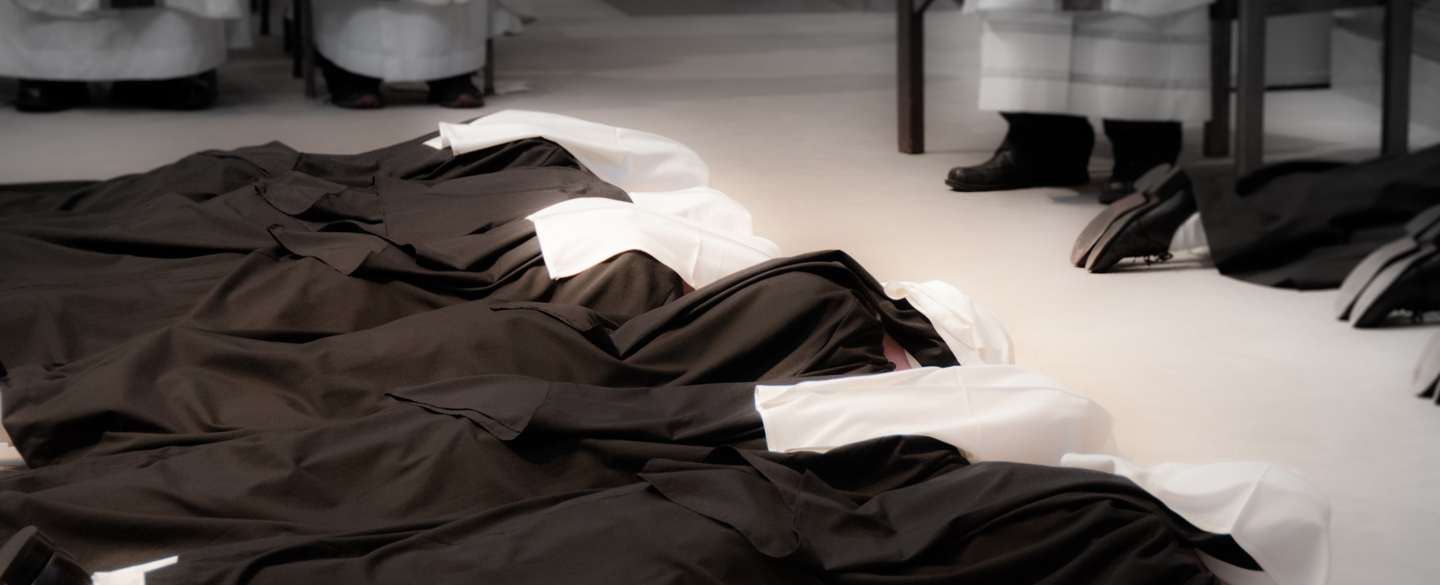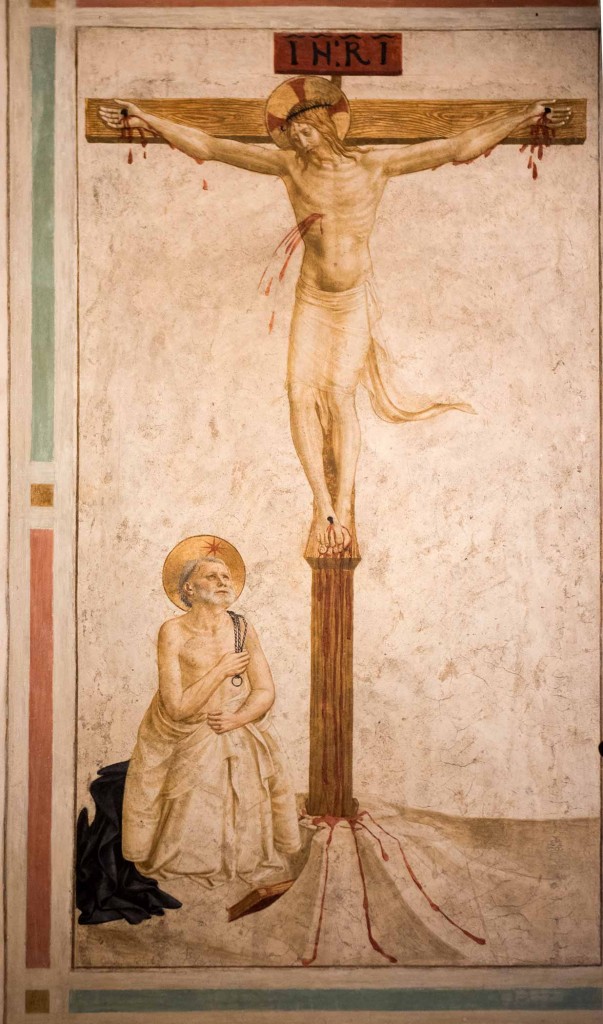
Because of our religious consecration, we even more than the rest of the faithful must deny ourselves, take up our cross, and put on the death of Christ in body and soul, so as to gain the glory of the resurrection for ourselves and for others. (Constitutions of the Congregation)
The traditional white and black of the Dominican habit represent purity and penance. Dominic preached and lived an appropriate physical discipline in order to foster deeper communion with God and with his people, while never denigrating the value of the human body. Asceticism is the handmaid of contemplation. In their contemplation, Dominicans are impelled to bring God to others. Therefore there could be no worthwhile apostolic action without the spiritual life being based in asceticism, that is, in penance.
 St. Dominic imposed many penances on himself. He was sparing in food and in sleep. These mortifications helped him to strengthen his will in order to be ready to face more difficult tasks. He would walk on his apostolic journeys rather than ride a horse. When he was misdirected by some heretics and found himself walking through thorns in bare feet, he bore the difficulty joyfully. For St. Dominic, however, penance was not merely about physical inconveniences, nor even about choosing mortifications for oneself. He knew that penance comes to us in many ways, through the situations of our daily life.
St. Dominic imposed many penances on himself. He was sparing in food and in sleep. These mortifications helped him to strengthen his will in order to be ready to face more difficult tasks. He would walk on his apostolic journeys rather than ride a horse. When he was misdirected by some heretics and found himself walking through thorns in bare feet, he bore the difficulty joyfully. For St. Dominic, however, penance was not merely about physical inconveniences, nor even about choosing mortifications for oneself. He knew that penance comes to us in many ways, through the situations of our daily life.
Generous souls recognize the Lord calling them personally to a private and deeper self-abnegation, and these same souls try to respond with joy. Religious life has many built-in penances. The defined horarium—living closely with companions we did not choose ourselves, eating from the common table—all these make the will of the Father most obvious to us. In accepting the call to religious life, we agree to subject our personal preferences to the common good. Yet we never limit our asceticism, our penances, only to those things required by our religious profession.
St. Catherine of Siena encouraged her disciples to educate themselves in their “cell of self-knowledge.” As we come to know ourselves, our strengths and our weaknesses, we understand the impediments that prevent us from loving God with our whole being. This is where personal penance ought to begin. The value of penance is not in the amount of suffering, but in its ability to promote our growth in the love of God and love of neighbor. For this reason, our personal asceticism is quite individual.
The word asceticism comes from a Greek word referring to practice, training, or exercise. Just as we choose particular exercises in order to train for a specific sport, so we should choose our ascetic practices according to particular goals. Our temperaments, cultural differences, and educational backgrounds form us uniquely. The settings in which we are called to serve God are very different. All of these should be considered as we identify personal penances designed to promote growth in the spiritual life.
Penance and ascetic practices are not ends in themselves. They are means to bring us closer to God. We work to strengthen our wills in order for God’s grace to find room in our souls. Of course God is not limited by our weaknesses, but neither does He choose to impose Himself on us against our wills. Asceticism makes the soul ready for the great works God wants to work in us. He has greater plans for our lives than we can even imagine. We must prepare the ground for the grace He wants to sow.

 Back
Back